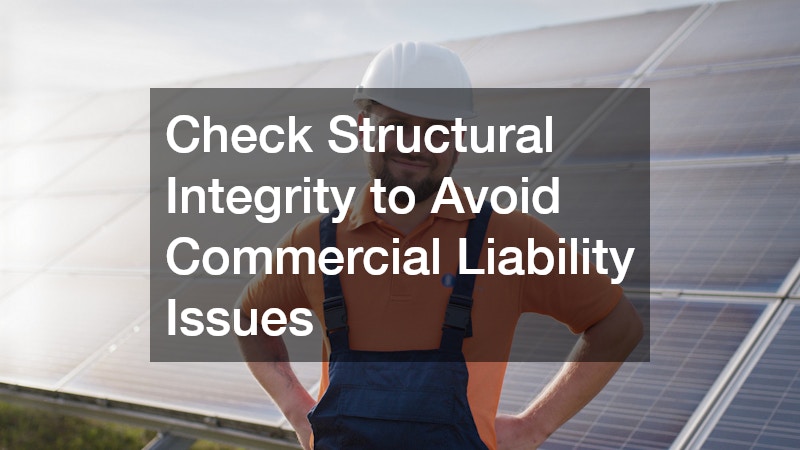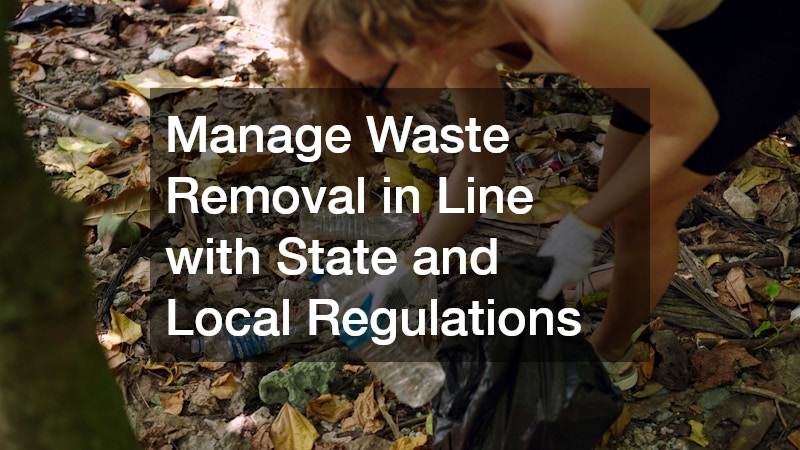
Owning and managing property is a substantial responsibility that demands careful oversight and attention to detail. Whether it’s a residential, commercial, or industrial property, the integrity of the premises must be maintained to ensure safety, regulatory compliance, and financial stability. At the heart of maintaining this integrity is the concept of inspection. Onsite inspections are comprehensive evaluations conducted directly on the property to assess various aspects such as safety, compliance, functionality, and structural soundness.
These inspections encompass a wide range of specialized services, including radon testing services, septic inspection services, and water well inspection. They are essential in identifying potential issues before they escalate into costly repairs or legal troubles. Moreover, inspections conducted by experts such as commercial roof inspectors offer invaluable insights into a property’s current conditions and future needs. This article delves into the significance of inspections across different domains, emphasizing the role of specialized services and routine checks in safeguarding property investments.
Understand the Health and Safety Risks Hidden Below the Surface

One critical aspect of property management is recognizing and mitigating health and safety risks that may not be immediately visible. Radon, a colorless and odorless gas, is a significant concern because of its potential health impacts. Radon testing services play a vital role in inspections, offering precise detection and analysis of radon levels within a property. By identifying elevated radon concentrations, property owners can implement necessary mitigation measures to ensure a safe environment.
Onsite inspections also involve thorough evaluations that can uncover a variety of hidden dangers such as structural weaknesses or hazardous materials. By proactively addressing these concerns, property owners can prevent adverse health outcomes and reduce liability risks. These inspections are pivotal in maintaining not just the physical but also the legal health of a property, ensuring compliance with local health and safety regulations.
Regular health inspections are an indispensable component of responsible property management. Engaging certified professionals for such evaluations ensures a comprehensive and accurate assessment of potential risks. This proactive approach helps avoid future complications that could arise from neglecting hidden hazards, ultimately protecting both the occupants and the property’s value over the long term.
Stay Aligned with Financial Reporting and Property Compliance Standards
The intersection of property management and financial accountability cannot be overstated. Adhering to financial reporting standards and compliance regulations is crucial for avoiding penalties and maximizing return on investment. Tax services, in particular, form an integral part of inspections, allowing property owners to align their financial practices with legal expectations. Accurate tax assessments and compliance reporting ensure that property owners remain in good standing with regulatory bodies.
Onsite inspections are indispensable for validating that a property meets all necessary financial and compliance criteria. Through detailed evaluations and certifications, these inspections provide a comprehensive overview of a property’s adherence to required standards, highlighting areas needing improvement. This information is invaluable for property managers seeking to maintain compliance and optimize financial outcomes effectively.
When it comes to aligning with property compliance standards, proper documentation and detailed record-keeping are essential. Onsite inspections facilitate the creation of thorough records and verification of compliance across various domains. By engaging professional inspectors, property owners can ensure that their properties comply with the latest regulations, thereby avoiding legal issues and maintaining financial transparency.
Verify Wastewater Systems Meet Local Environmental Guidelines
Wastewater management is a critical environmental and public health consideration for any property. Ensuring that septic systems function correctly and comply with local environmental guidelines is a priority. Septic inspection service is invaluable for conducting inspections that assess the effectiveness, safety, and compliance of wastewater systems. These inspections help identify potential leaks or malfunctions that could harm the environment or violate regulations.
By conducting thorough inspections, septic systems’ operational efficiency and environmental impact are thoroughly evaluated. This not only prevents costly malfunctions but also ensures that the property adheres to local and federal environmental guidelines. Being proactive in verifying wastewater systems also contributes to sustainable development by protecting local water sources from contamination.
Property owners need to partner with certified professionals for septic inspections to achieve comprehensive assessments. Regular inspections help maintain system functionality and prevent environmental hazards, promoting community health and property longevity. Additionally, maintaining records from these inspections supports compliance documentation and provides evidence of due diligence regarding environmental responsibilities.
Check Structural Integrity to Avoid Commercial Liability Issues

The structural integrity of a commercial property is critical not only for safety but also for minimizing liability risks. Engaging commercial roof inspectors for inspection is essential to identify weaknesses or deterioration that could compromise the building’s integrity. These inspections thoroughly assess the durability and safety of roofing systems, which are pivotal in protecting the property from environmental elements and potential liabilities.
Structural inspections conducted onsite can reveal hidden issues that may contribute to larger safety concerns if left unattended. Addressing these vulnerabilities promptly not only prevents costly repairs but also demonstrates a commitment to maintaining a safe and reliable environment. Regular inspections ensure that commercial properties can withstand environmental stressors and adhere to building standards, further safeguarding owners from potential liability issues.
To effectively manage liability concerns, property owners should establish a routine inspection schedule with certified inspectors. This strategy helps in recognizing early signs of structural damage and allows for timely interventions. Proper documentation and adherence to recommendations from these inspections reinforce a property’s commitment to safety and compliance, reducing overall risk exposure.
Assess Water Sources for Regulatory and Potability Requirements
Ensuring the quality of water sources within a property is of utmost importance for health and regulatory compliance. Conducting a water well inspection as part of an inspection protocol provides an in-depth analysis of water quality and system functionality. These inspections assess well conditions, potential contaminants, and overall compliance with potability standards, ensuring that water sources meet usage requirements.
Onsite inspections of water sources not only confirm compliance with local regulations but also safeguard the health of those utilizing the water. Through regular evaluations, property owners can proactively address any issues, ensuring that water remains safe and within potable standards. Inspections also provide data necessary for maintaining regulatory compliance, thereby avoiding potential fines or legal actions.
Professional water well inspections help identify issues such as microbial contamination or mechanical defects. These evaluations are critical in maintaining the quality of water provided to occupants or within industrial processes. Establishing routine inspections of water sources reinforces a property’s commitment to health, safety, and regulatory fidelity, ultimately enhancing overall property value.
Identify Indoor Air Quality Threats Before Legal Issues Arise
Indoor air quality is an aspect of property management that affects occupant health and comfort. Mold inspection services conducted as part of inspections can detect mold presence and evaluate air quality, preventing potential health risks and legal challenges. Early identification and mitigation protect occupants from health problems associated with poor air quality and reduce liability exposure for property owners.
Onsite inspections focusing on air quality assess indoor atmospheres for contaminants and potential threats. These evaluations ensure that properties comply with health standards and regulations, preventing future legal disputes. Addressing issues related to air quality enhances tenant satisfaction and maintains the property’s reputation, providing long-term benefits for owners and managers.
Continual monitoring and inspection of indoor air quality are integral to proactive property management. By engaging mold inspection services and other air quality experts, property managers can ensure environments remain healthy and habitable. This diligence reflects a commitment to occupant welfare and legal compliance, mitigating risks and promoting property longevity.
Review Roofing Conditions to Meet Building Code Standards

The condition of a property’s roof is a crucial element in ensuring compliance with building codes and ordinances. Roof inspection services undertake comprehensive onsite evaluations to examine roofing systems for adherence to safety and durability standards. These inspections identify structural weaknesses, material deterioration, and other issues that could jeopardize roof integrity or lead to code violations.
Conducting a thorough onsite roof inspection ensures that roofing structures are robust, reliable, and compliant with local building codes. This proactive maintenance approach prevents severe damage and potential legal issues arising from non-compliance. By adhering to recommended maintenance practices, property owners can avoid costly repairs and uphold construction standards.
Professional roof inspections not only verify compliance but also provide essential information for planning future maintenance and repairs. These inspections help property owners understand the current state of their roofing systems, enabling informed decisions on timelines and budgets for necessary interventions. Regular roof inspections fortify a property’s resilience against environmental stressors and extend its lifespan, ensuring legal compliance and reducing financial risks.
Incorporate Routine Checks to Prevent Costly Code Violations
Routine preventative maintenance inspections are fundamental to identifying potential code violations before they become problematic. These inspections encompass a comprehensive evaluation of a property’s various systems and components, ensuring compliance with applicable standards and regulations. Regular inspections play a preventative role, uncovering issues early and allowing for timely corrections to avoid penalties and fines.
Onsite inspections help predict and address potential maintenance needs, thereby preserving the property’s functionality and safety. Establishing a consistent inspection and maintenance schedule reduces the likelihood of encountering unexpected repairs and extends the lifecycle of property systems. By integrating these inspections into property management practices, owners demonstrate a proactive approach to preserving both safety and financial health.
Partnering with professionals for preventative maintenance inspections ensures such evaluations are thorough and productive. Inspection reports offer detailed insights and recommendations for potential improvements, guiding property owners in maintaining compliance and minimizing risks. The commitment to regular inspections not only enhances property value but also ensures long-term adherence to safety and quality standards.
Confirm Proper Drilling Practices with Groundwater Protection Laws
Proper well drilling practices are imperative to protect groundwater quality and meet regulatory requirements. Collaborating with well drilling companies for inspections guarantees that drilling activities align with established guidelines and protect the environment. These inspections verify compliance with groundwater protection laws, preventing contamination and ensuring safe drinking water supplies.
By conducting inspections of drilling operations, well drilling companies can identify potential areas of concern early and implement necessary corrective actions. This practice not only safeguards environmental health but also promotes legal compliance and reduces liability risks for property owners. Regular evaluations emphasize the importance of sustainable practices in preserving water resources and maintaining community well-being.
Onsite inspections conducted by professional well drillers provide property owners with peace of mind, knowing that all activities meet both safety and environmental standards. These inspections form a critical component of responsible property management, ensuring that all drilling operations uphold the highest levels of environmental integrity. Effective collaboration with well drilling companies reinforces a property’s commitment to sustainable operations and regulatory compliance.
Manage Waste Removal in Line with State and Local Regulations

Proper waste management is essential to comply with state and local regulations and to protect public health and the environment. Septic pumping companies are key partners in conducting inspections to evaluate and manage septic systems effectively. Regular inspections and necessary pumping help prevent system overloads, failures, and environmental contamination.
Onsite inspections conducted by septic professionals identify potential issues within waste management systems, ensuring that they operate efficiently and within regulatory standards. These evaluations are vital for maintaining system functionality and preventing potential hazards that could result in costly fines or legal actions. Routine maintenance and inspections by septic pumping companies demonstrate a commitment to environmental stewardship and legal adherence.
Property owners must prioritize partnerships with septic experts to schedule regular inspections and maintenance services. This proactive approach ensures waste management systems remain operable and compliant, contributing to a safe and sustainable property environment. By adhering to recommended practices, property managers and owners can minimize risks, protect water quality, and maintain compliance with environmental standards.
Onsite inspections are an indispensable element of property management, serving as a safeguard for health, safety, financial stability, and compliance with regulations. From detecting hidden health threats through radon testing services to ensuring optimal water and waste management, inspections play a crucial role in maintaining a property’s integrity. Regular evaluations by certified professionals, such as commercial roof inspectors and well drilling companies, ensure every aspect of a property is thoroughly assessed, preserving its value and safety.
Routine inspections also enable property managers and owners to demonstrate their commitment to responsible stewardship, assuring tenants, clients, and regulatory bodies of their diligence. By proactively identifying and addressing potential issues, these inspections mitigate risks and prevent costly repairs or legal challenges. In a rapidly evolving regulatory landscape, staying compliant with inspections is not only wise but imperative to safeguard investments.
Ultimately, investing in regular onsite inspections and maintaining alignment with regulatory standards bolsters the long-term success and sustainability of any property. Continual attention to compliance and maintenance not only protects against liabilities but also fosters a trusting relationship with tenants and the community. Embracing a comprehensive inspection strategy is a testament to a property’s dedication to excellence, ensuring its enduring functionality and appeal.
